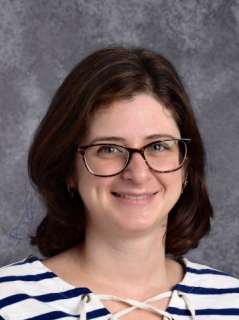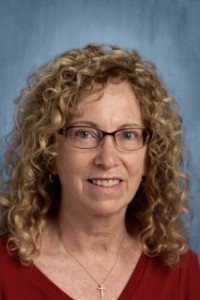Special Services
Overview of Special Services:
Special Services for students in the Sterling Community School are provided by a number of professionals, including the:
- Social Worker
- School Psychologist
- Speech/Language Pathologist
- Occupational Therapist and Certified Occupational Therapy Assistant
- Physical Therapist
- School Nurse
- Special Education Teachers
- instructional support specialists as necessary to meet the particular needs of student(s)
The delivery of Special Services for students is driven by the individual needs of each student, the requirements of the Federal and State mandates (IDEA), and the availability of resources within the student's home and the Sterling School District or extended school community.
The full complement of student services in the Sterling Community Schools includes the following services and programs: Child Study Team, Child Find, Gifted and Talented Identification, Homebound Instruction, Occupational and Physical Therapy, Out-of-District Placements, School Based Counseling Pre-K - Grade 8, School Psychological and Behavioral Services Pre-K - Grade 8, Section 504 of the Rehabilitation Act of 1973, Speech/Language Services, Transition Planning, Vocational/Transitional Services, School Health Services.
More information on each of these services and programs can be found below
The Special Education screening for preschool aged children takes place at Sterling Community School. The screening is provided to assist parents of preschoolers in monitoring the developmental growth of their children and serves as an opportunity to identify any youngster who may need Special Education and Related Services. Assessment includes a developmental screening and a parental interview regarding the child’s health history and developmental milestones. Time will also be provided for feedback to parents. Screenings can be scheduled to assist parents who have questions regarding their preschooler’s language and/or motor development.
Sterling Community School District provides a school health services program which includes placement of a registered nurse at Sterling Community School. The primary purpose of the Sterling Community School Health Services Program is to facilitate and promote optimal learning for students. Thus, the program strives to meet the following goals:
- To promote early identification and remediation of health problems and needs of students.
- To assist students to assume responsibility for their own health and to develop healthy attitudes and practices.
- To provide health education and counseling for students, school personnel, and parents.
- To provide health services and first aid for students and staff.
- To promote environmental safety and awareness of hazards.
- To maintain a liaison with health care providers and community health programs / agencies.
- To protect the health of students and staff by preventing the outbreak and spread of communicable diseases through enforcement of health laws and school policies.
- To promote school health services as part of the educational process.
The goals and objectives of the School Health Services Program are based upon Connecticut State Law pertaining to school health, the policies of the Sterling Community School Board of Education, and the needs of the school population of students, faculty and staff.
Medical advisory services are provided by the School Medical Advisor who assists with school policy and procedure development, maintains standing orders, and provides medical consultation.
School nursing services are provided on a full-time basis by the registered school nurse who helps students attain a high level of wellness and is a liaison between education and health care. The school nurse also provides a link between the school, home and community. The school nurse services include:
- Emergency first aid care for illnesses and injuries.
- Administration of medications and other treatments for students with special health care needs.
- Surveillance and control of communicable diseases.
- Screening and referral for vision, hearing, and postural abnormalities.
- Review of health assessments and immunization status to ensure compliance with state law and school district policies.
Behavior Intervention Services provides comprehensive behavior intervention and support to school teams for students receiving general and/or special education services. Services are provided for students Pre-K through grade 8.
Sterling Community School behavior intervention services are committed to:
- Providing collaborative behavioral support to teachers and school teams to help build capacity to meet the needs of a broad range of students.
- Providing professional development opportunities for school staff in the design and implementation of research based behavior strategies.
- Assisting school teams in the development, collection and analysis of data to provide informed, effective behavioral programming for students.
- Providing school teams with student crisis intervention support.
The Sterling Community School District Preschool Program serves children ages 3 to 4 who may have been identified as having significant developmental delays in one or more of the following areas: speech, language, fine and/or gross motor, social/emotional, vision and hearing. Children who may be in need of special education or related services are referred to Child Find for information, developmental screenings and possible referral for additional comprehensive evaluations to determine eligibility for services.
The “mission” of the early childhood identification and services is a commitment to:
- Providing family focused services.
- Meeting the diverse needs of our children in the most appropriate environment.
- Building positive relationships to enhance our children’s learning.
- Providing quality services to improve our children’s learning through the use of developmentally appropriate best practice.
- Expanding effective collaboration throughout the Sterling community.
The IEP team may consist of parents; the student, as appropriate; the special education teacher; a related-services provider; a general education teacher if the student participates or may participate in general education classes; a representative of the school system who is qualified to provide or supervise special education services; and others as requested. The Individuals with Disabilities Education Act (IDEA) and the Connecticut special education regulations require that an IEP contain the following:
- A statement of the child’s present levels of academic and functional performance, as well as any concerns of the parents.
- A statement of measurable annual goals which may also include short-term objectives.
- A description of how the child’s progress toward meeting the annual goals will be measured, and when progress reports will be provided.
- A statement of the special education and related services and supplementary aids and services to be provided to the student.
- A statement concerning the extent to which the student will participate in general education.
- A list of required curriculum, testing, and classroom accommodations and modifications.
- A statement concerning the extent to which a student will participate in the district-wide and statewide assessment programs and accommodations that a student will need during testing. If the student will not participate in the assessments, the IEP must indicate how the student will be assessed.
- The date when special services and modifications will begin and the frequency, location and duration of the services.
- A statement of needed transition services for students 14 years of age, or younger if determined by the IEP team.
As related service providers, physical and occupational therapists (assistants) in Sterling Community School District work to assure that students in special education benefit from their educational program. Therapists work closely with teachers and other members of the school team to identify and establish solutions and/or adaptations that help students to participate as fully as possible in their school settings. As team members, therapists share information and integrate their specialized knowledge in child development, motor learning and task performance to provide a unique perspective within the educational environment.
The process of developing and achieving student goals is shared among team members, and may include: teachers, therapists, parents, student, instructional aides, and other school personnel, as needed. Interventions are provided as part of the student’s daily routine in the natural setting and may include:
- Adapting activities naturally occurring within the student’s routine.
- Developing opportunities for the student to practice new motor skills
- Positioning for school task performance.
- Monitoring of adaptive equipment.
- Problem solving with others to encourage motor development and independence.
Therapy time includes all anticipated therapist interactions pertaining to the individual student needs such as:
- Consultation and collaboration.
- Equipment and task modifications/adaptations.
- Hands on interventions.
- Training in implementation of interventions and equipment.
A student’s need for occupational and physical therapy services may vary over the course of their educational career, related to changes in environmental and curricular demands, as well as changes in student roles and performance requirements. Any team member may request the expertise of the occupational and/or physical therapist regarding concerns that arise within the school environment.
The focus of the speech-language pathologist in our District is to facilitate the development of effective and efficient communication skills so that students may participate as fully as possible in educational, social, and vocational interactions. Working as members of school-based teams, the speech-language pathologist participates in the prevention, identification, assessment, evaluation, eligibility determination, treatment plan development, and treatment management of those students with disorders in the areas of speech and/or language.
Speech-language services are designed and delivered in a variety of ways across multiple settings to best meet the individual student’s needs. Decisions regarding particular service delivery models are based on a variety of factors including the type and/or severity of the weakness, its impact on the student’s ability to access the curriculum and/or effectively navigate through meaningful social interactions, and integration of services with educational experiences. Our speech-language pathologist and the team with which she consults strives to provide services that are…
- curriculum based;
- outcome oriented;
- integrated with educational activities;
- diagnostic in nature, dynamic and changing as the student’s needs change;
- based on research-proven strategies; and
- designed to ensure access to the student’s curriculum.
Special Services Office: +1 (860) 564-2720
Special Services Staff
Publications
- A Parents Guide to Special Education in CT (Updated 9/27/2021)
- IEP Manual (Updated 7/1/2022)
- Transitional Bill of Rights
- Procedural Safeguards Notice (Updated 3/31/2021)
- Child Find Development Screen
- Building A Bridge - A Transition Manual for Students 14+
- Parental Notification of Seclusion and Restraint
- Sparkler Information & Setup Guide

